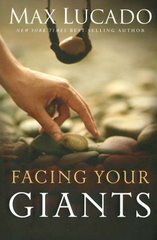The Prayers of the Prodigal: Part III
I cannot stay here to consider why the younger (prodigal) son goes to his father, etc. The whole field is fertile, suggestive and real. He can stand the cramping no longer, so he asks of his father his share of goods--"Give me the portion of goods that falleth to me." And here we can find no sin. It was not wrong that he should have what lawfully belonged to him. It was coming to him, and no doubt since he was of age the father consents at once to give him his portion.
Now we come to a field for speculation. It has been a great pleasure for some to let their imagination run on full leash, to sniff all the possible trails of discovery as to how he spent, where he spent, why he spent, and when he spent his goods in riotous living. But after all, the detail is not so necessary. At least God thinks so; I am sure He could have told us were it for our good. The point is, he wasted it in riotous living.
src="http://pagead2.googlesyndication.com/pagead/show_ads.js">
Now we find the fault, the sin which brought the younger son to the pigpen. All the different things he did, and the many ways he wasted his substance, are surely wrong. But the chief sin was the self-will of inexperienced youth. Self-will is, after all, the root sin of the human race. All the manifestations of sin as we see them in their out-working are in the last analysis the fruit of self-will. All this young man did was to have his own way. Let that be what it may, it landed him in the place of defeat, failure, tragedy and loss. It always does.
All you have to do to land in hell is to have your own way in all the thousand patterns it may trace on your map of life. The self-will of some people does not make so ugly a picture, but it will keep them away from God and truth fully as well as the self-will of another appearing in more picturesque and colorful trappings.
Who knows but the self-will of the older brother at home may have been as nasty, in some ways, as that of the younger brother. At least he did not show a very happy and thankful spirit when his brother returned. I am afraid there was something "awful good" and perhaps smug about that older son. I don't seem to feel I would like his general personality very much. "Awful good" folks bother me sometimes. Do not mistake me--goodness in itself never bothers me, for it is like God, and I love God. But "folks" goodness does. Do you see the difference?
So now we see our young friend reduced to the level of a pigpen. He has had, as people say, his fling in life. He has tried out all the experiments and thrills he feels he was made for; he has had the tremulous excitement of venturing out on the thin ice of personal freedom. He has come at last with tired heart and weary feet to the green hills only to find them decked with the brush of human experience thousands of years old. All those wise and subtle suggestions of his mind have been swallowed up in a vortex of human philosophy as old as the human race. How many, many things he has come to in his thrilling, bold adventure. He has come to wealth and he has spent it; to beauty and he has marred it; to truth and he has ignored it; to life and he has dissipated it.











No comments:
Post a Comment